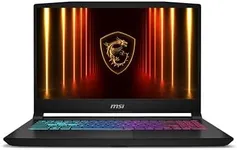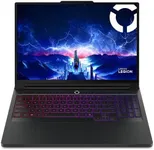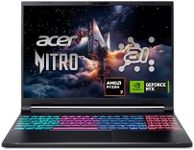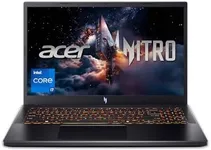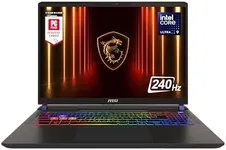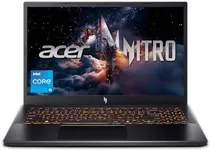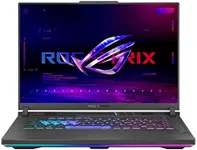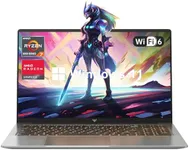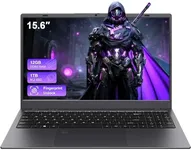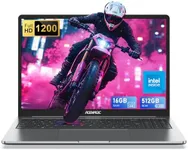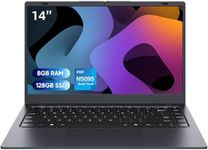Buying Guide for the Best Budget Gaming Laptops
When looking to buy a budget gaming laptop, it's essential to strike a balance between performance and affordability. Gaming laptops are unique because they need to handle intensive tasks like running modern games smoothly, which puts extra demand on hardware compared to regular laptops. As you compare different models, you'll need to review certain specs closely as they directly influence your gaming experience—think of these as the pillars that hold up your overall satisfaction. Understanding what each spec means, why it matters, and how it matches your personal gaming style or needs is key to making a smart purchase.Graphics Card (GPU)The graphics card, or GPU, is the heart of any gaming laptop as it's mainly responsible for displaying game visuals and running graphics-intensive processes. Entry-level GPUs allow you to play older or less demanding games on lower settings, whereas mid-range models handle most newer games at decent settings, and high-end ones provide ultra-smooth details and effects. For budget gaming, focus on laptops with at least a dedicated entry-level GPU—integrated graphics in budget categories may struggle with modern gaming. Think about the types of games you want to play: casual and indie games are less demanding, while AAA titles require more GPU power. Match the GPU to your gaming expectations.
Processor (CPU)The processor, or CPU, acts as the brain of your laptop, handling tasks and influencing the speed and smoothness of your games and multitasking. Budget gaming laptops generally come with mid-range CPUs, which are sufficient for gaming, streaming, and basic multitasking. Entry-level CPUs may be adequate for light gaming or older titles, while more demanding games benefit from a faster, multi-core processor. Think about whether you'll use the laptop for other intensive tasks (like video editing) alongside gaming—if so, lean toward a more capable CPU.
RAM (Memory)RAM helps your laptop run more smoothly by temporarily storing data for active applications and games. With too little RAM, your gaming experience can become laggy or unresponsive. For budget gaming laptops, 8GB is considered a practical minimum for most modern games, but upgrading to 16GB can help future-proof your system and improve multitasking, especially if you like to run several applications at once. If you mostly play older or less demanding games, 8GB may suffice, but consider your usage patterns now and in the future.
Storage (HDD/SSD)The storage in your laptop determines how much data, including games and files, you can keep on your device. Gaming laptops with solid-state drives (SSDs) give much faster load times compared to traditional hard drives (HDDs), leading to a more responsive feel. Budget options may offer smaller SSDs or a combination of an SSD with a larger HDD for extra space. If you value quick startup and loading, prioritize an SSD—even if it means less storage, you can always use external drives later. Consider how many games you'll install at once to gauge your needed storage capacity.
Display (Resolution & Refresh Rate)The laptop display affects how crisp and smooth your games look. Resolution (like 1080p, sometimes called Full HD) means image clarity, while refresh rate (measured in Hz) influences how many frames per second the screen can show, making motion look smoother. Budget laptops usually offer a 60Hz refresh rate at 1080p, which is acceptable for most users. Higher refresh rates (like 120Hz or 144Hz) are smoother but might only be necessary for e-sports or fast-action games. Choose based on what feels important to you: visuals for adventure games, or smooth motion for shooters and racers.
Cooling and Build QualityGaming puts a lot of stress on laptop components, causing them to heat up. Effective cooling systems are vital to prevent overheating, which can slow down performance or even damage hardware over time. While budget laptops may cut some corners here, look for smart vent placement and solid build quality to ensure your laptop can keep cool during long gaming sessions. If you plan to game for hours or in warm environments, prioritize better cooling and sturdier builds.
Battery LifeBattery life is generally shorter in gaming laptops due to their high-performance parts, and even more so on budget models. While gaming unplugged drains the battery fast, consider how often you'll use the laptop away from a power outlet. If you mostly play while plugged in at a desk, battery life may be less critical. However, if you attend gaming events or like to play on-the-go, look for reviews or manufacturer claims of longer battery performance during regular use (not just gaming).
